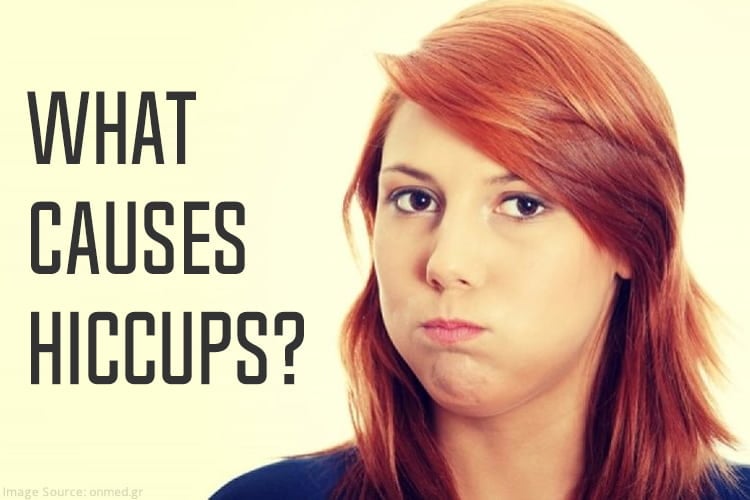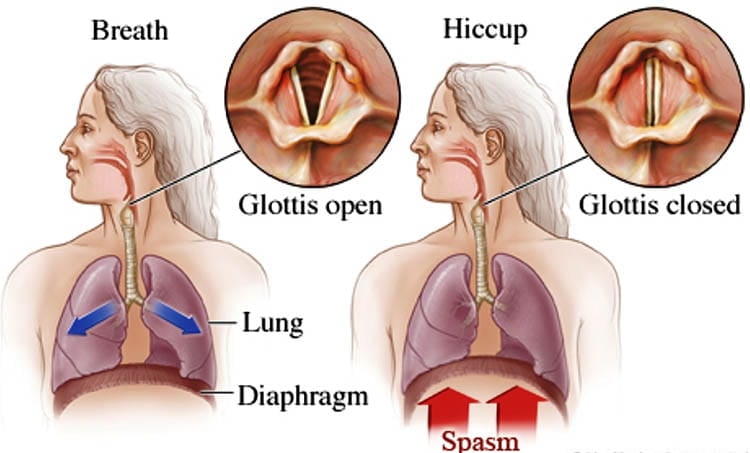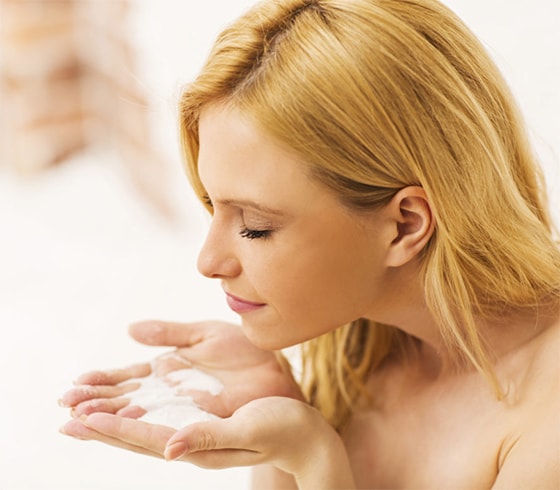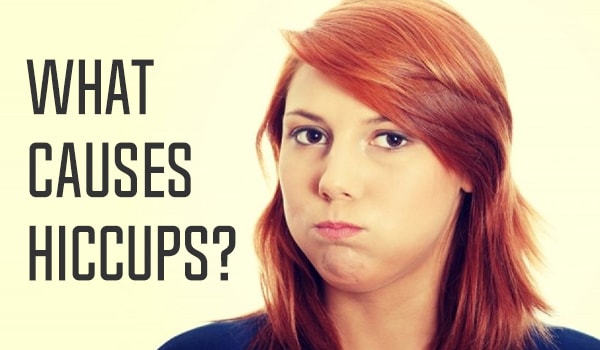You are in the midst of something – at work, at a party, or at an evening show, or maybe just had a meal and chugging your favourite beverage. Suddenly you get hiccups. You reach out for a glass of water, as you feel some kind of a sensation in your throat, chest, or abdomen.

Although one bout of hiccups last only for a minute, it surely makes you feel uneasy. It is worth knowing what causes hiccups – the temporary and minor annoyance that gets irritating.
Do you know the longest ‘recorded’ hiccup attack? It is 6 decades!!
Okay, let us know the definition of Hiccups first.
It is a sudden “spasm” of the diaphragm muscle involuntarily. When the spasms happen, the vocal cords shut, producing the hiccup sound.

Source: healthjade.com
Let us find out about the causes.
Brief Background On What Causes Hiccups:
How do you know what causes hiccups? When the following has happened:
- Eating fast and too quickly
- Eating or drinking in excess, in fact, more than you should
- Drinking carbonated beverages
- Drinking excess of alcohol
- Swallowing air with chewing gum
- Sucking on candy
- Certain medications
- Sudden changes in temperature
- Noxious fumes
- Strokes or brain tumors
- Diseases that irritate the nerves which control the diaphragm
- Excitement or emotional stress
- Abdominal surgery
The causes of hiccups change from person to person and depend on the environment and situation. They are not the same for everyone. Hope you are clear on what causes hiccups.
What If Hiccups Get Prolonged:
In rare cases, hiccups can last for days or weeks. An underlying condition is responsible for this situation, or due to some medications being taken by the sufferer.
What are the underlying conditions behind a hiccup?
- Nerve irritation or damage to the vagus or phrenic nerves, which serve the diaphragm muscle.
- The central nervous system disorders caused by a tumor or infection can disrupt the body’s normal control of the hiccup reflex.
- Metabolic disorders, which are triggered by drugs, alcohol consumption, barbiturates, chemotherapy (for cancer treatment), steroids, tranquilisers, kidney disease, and electrolyte imbalance.
[sc:mediad]
Complications In Hiccups:
Now for the complications. Well, prolonged hiccups may end up interfering with:
- Eating
- Sleeping
- Speech
- Healing of wound, after surgery
How to stop Hiccups:
The next part tells you more.
Home Remedies For Hiccups:
Most of you may wonder whether there any home remedies to stop hiccups.
Yes, there are. Try these methods on how to stop continuous hiccups to get relief from common hiccups.
- Drink a glass of water quickly (preferably cold water) or do a gargle with ‘iced’ water. This shock treatment will cause distraction and in the process, stop the hiccups.
- Avoid carbonated beverages and foods that produce gas.
- Hold your breath immediately.
- Bite into a lemon.
- Breathe into a paper bag (without pulling the paper bag over your head). Heart and stroke patients should avoid adopting this remedy.
- Use smelling salts.

Source: drweil.com
For severe hiccups, which are persistent and last for more than 3 hours, it is best to take a doctor’s prescribed medication. Thorazine (chlorpromazine) is usually the first prescription medicine that has proved to stop hiccups.
If these treatments fail to show relief, your doctor may advise you an injection of an anaesthetic to block your nerve to stop hiccups.
Do not hesitate to seek medical attention if you face dire consequences such as:
- Abdominal pain
- Shortness of breath
- Fever
- Vomiting
- Blood spitting
- Feel as if your throat is going to close up.
Hope you will follow these remedies for hiccups treatment. Do share this article on your social network, as well as with friends and family.
